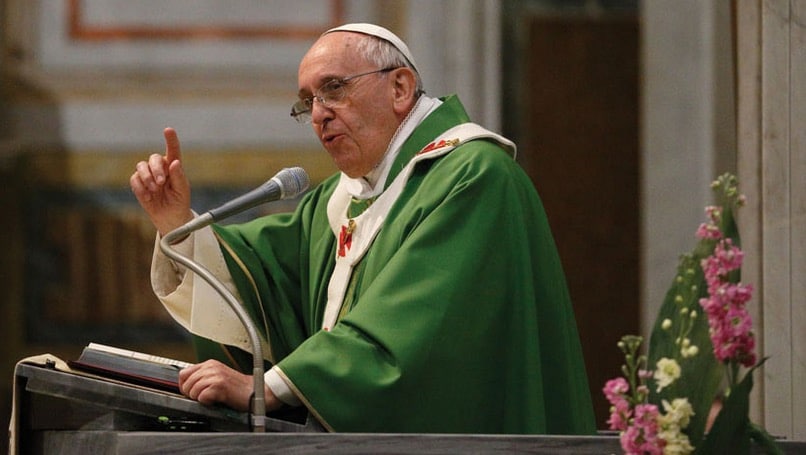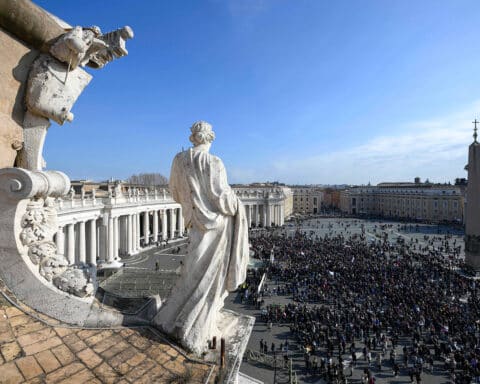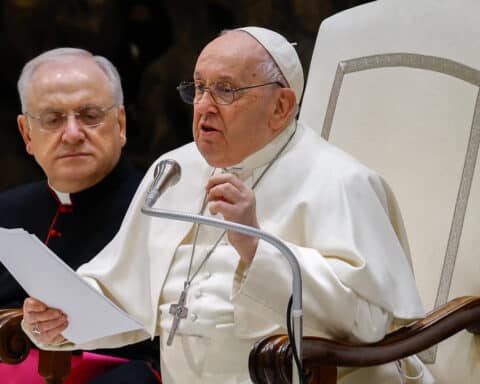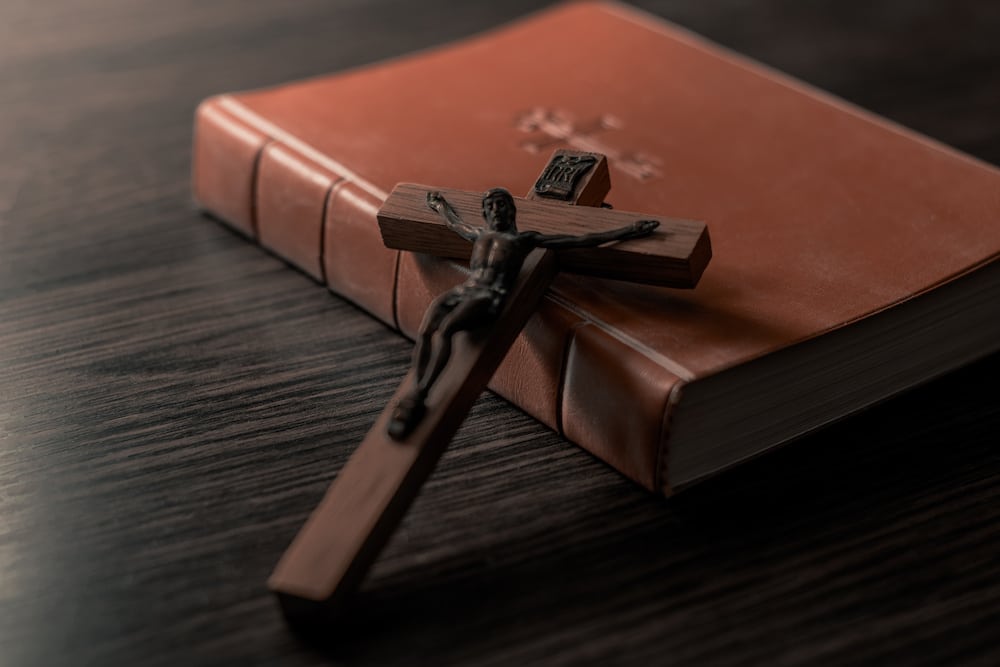To most of the world, Pope Francis is the pope of the poor, foe of unrestrained free-market capitalism, reformer engaged in shaking up the Roman Curia, ecclesiological innovator committed to consultation, collegiality and decentralization in the governance of the Church.
Francis is all that, but he’s also more — something his image as a social activist and agent of structural change might not lead you to expect.
In short, this pope is a believer in the end times who’s convinced they aren’t merely coming but are, in a sense, already being played out before our eyes. This, likewise, is someone who believes the devil is real and perceives a demonic hand at work in current events.
For example: The Vatican summary of his weekday homily Nov. 28 quotes him as saying: “The devil pushes us to be unfaithful to the Lord. Sometimes he pushes hard.”
Francis went on to add that this is more than just individual temptation. Scripture, he pointed out, “speaks to us about a universal temptation, about a universal trial, about the time when … the whole of the Lord’s creation will be faced with this choice between God and evil, God and the prince of the world.”
That time, he made clear, is now.
Cautious, optimistic
That said, it’s important to realize nothing Pope Francis has said lends support to sweaty-palms predictions that the end of the world is imminent. On the contrary, much that the pope has said and done seems to reflect the assumption that Church and world will both be around for a long time.
He’s no fan either of so-called private revelations and speaks disparagingly of them in section 70 of his recent apostolic exhortation on evangelization, Evangelii Gaudium (“The Joy of the Gospel”), which may not bode well for Medjugorje, the place in Bosnia where apparitions of the Blessed Virgin supposedly began in 1981 and are said to continue.
A Vatican commission recently completed its study of the Medjugorje events and passed it on to the Congregation for the Doctrine of the Faith, which will make a recommendation to the pope. Meanwhile, the congregation’s prefect, Cardinal Gerhard Müller, told U.S. bishops in November not to allow Church-sponsored events featuring the Medjugorje “seers.”
While no one can be sure what Pope Francis will do, he said Nov. 14 that Mary is “not a postmaster … sending out messages every day.”
Devil at work
It’s a different story with the end times and the devil. The pope makes no bones about accepting the reality of both.
Regarding the end times — the era preceding the Second Coming of Christ, the last judgment and the end of the world — several themes stand out in his thinking. One is that this will be a time when the Church and Christians are persecuted.
In his Nov. 28 homily, he spoke of the present as a period of “general apostasy.” Mighty forces anxious to keep God from being worshipped seek to convince Christians to take a “reasonable and peaceful road” by obeying “worldly powers” bent on reducing religion to “a private matter,” he said.
Describing the ensuing persecution of the Church as “a calamity,” the pope said: “It will appear to be the triumph of the prince of this world, the defeat of God. It will seem as though he has taken over the world [and become] master of the world.” As for the persecuted Christians, he added, they are “a prophetic sign of what will happen to everyone.”
Lest there be any doubt, Pope Francis emphasizes that the persecution of religion he envisages will involve the shedding of blood. In his Nov. 18 homily, he cited the Old Testament Book of Maccabees, which tells of the martyrdom of faithful Jews and cautioned today’s believers against subscribing to an “adolescent progressivism” that encourages the abandonment of faith.
“Do you think there are no human sacrifices today?” he asked rhetorically. “There are many, many of them. And there are laws that protect them.”
This apparently means laws that protect the sacrifices, not those who are sacrificed. Legalized abortion comes to mind.
‘A prophecy’
It was in this context that Francis — in a reference that caught the attention of people who understood it — spoke of “Lord of the World,” calling it “almost … a prophecy.”
Published a century ago, “Lord of the World” is a novel by Robert Hugh Benson, son of an archbishop of Canterbury who converted to Catholicism, became a priest and wrote works of fiction and popular devotion.
The novel is probably Benson’s best known book. It’s a futuristic end-times story depicting a radically secularized society whose authoritarian regime controls its mostly willing subjects by providing them with a feel-good environment where religion and traditional morality are systematically excluded.
The “Lord” of this world of the not-so-distant future is a mysterious figure who, as the story unfolds, grows more and more recognizable as the Antichrist whom the Bible foretells as precursor of the end times. The tale concludes on the plains outside Nazareth where the Antichrist and his followers are preparing to exterminate the last believers led by the last pope.
Beginning of the end?
Francis evidently thinks at least some end-times events are already taking place. But that’s not new. “With God’s coming into history,” he said, “we are already in the last times” — and could be for a long while to come.
However that may be, on May 4 he said Christianity is more persecuted today than at the start. “So many Christian communities are persecuted around the globe,” he said. “More so now than in the early times … Why? Because the spirit of the world hates.”
This is to say that persecution is the work of the devil of whose existence he is no less certain. In an Oct. 15 homily he declared: “The demon is shrewd: He is never cast out forever, this will only happen on the last day.”
The pope then offered his analysis of “the devil’s strategy,” putting these words in the mouth of the devil himself: “You become a Christian, go forward in your faith, and I will leave you alone … But then, once you have grown accustomed to it, are no longer watchful and feel secure, I will return.”
Pretty clearly, Francis thinks the devil is back today. Considering the state of the world — and also in some ways the state of the Church — many people would agree.
Russell Shaw is an OSV contributing editor.





